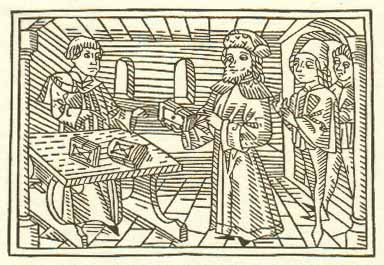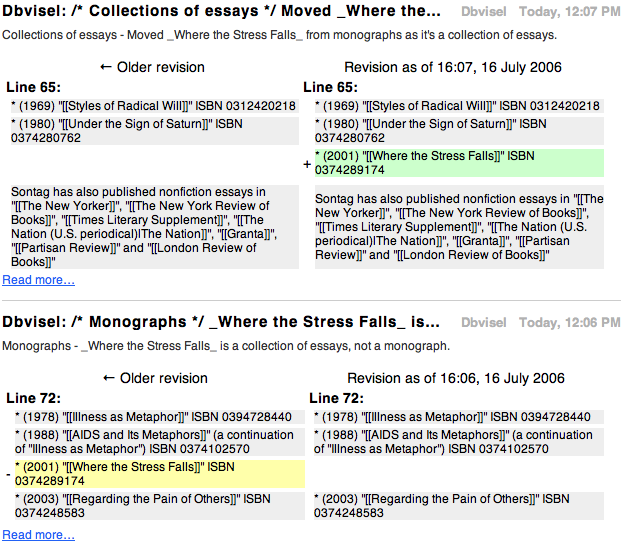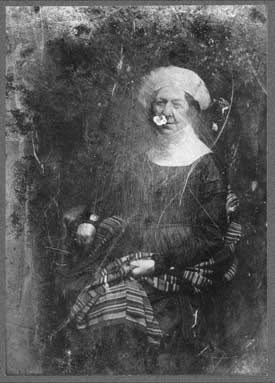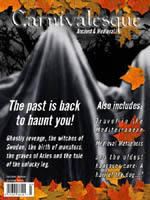Leafing through an 1899 issue of the literary magazine The Dial, I came across an article called “The Distribution of Books” which resonated with the present moment at several uncanny junctures, and got me thinking about the evolving relationship between publishers, libraries, bookstores, and Google Book Search — thoughts which themselves evolved after a conversation with a writer from Pages magazine about the future of bookstores.
“The Distribution of Books” focused mainly on changes in the way books were marketed and distributed, warning that bookstores might go out of business if they failed to change their own business practices in response. “Once more the plaint of the bookseller is heard in the land,” lamented the author, “and one would be indeed stony-hearted who could view his condition without concern.”

According to “The Distribution of Books,” what should have been the privileged domain of the bookseller was being eroded at the century’s end by the book sales of “the great dealers in miscellaneous merchandise.” The article was referring to the department stores that sold books at a loss in order to lure in customers: a bit less than a century later, critics would make the same claims about Amazon, that great dealer in miscellaneous merchandise now celebrating its tenth anniversary. “The Distribution of Books” also complains of the direct marketing practices of publishers who attempted to market to readers directly. This past year, similar complaints were made after Random House joined Scholastic and Simon and Schuster this year in establishing a direct-sale online presence.
Of course, 2005 is not 1899, and this is what makes the Dial piece so startling in its familiarity: in 1899, after all, the distinction between publisher and bookseller was much fresher than now. Hybrid merchant/tradesman who printed, marketed and distributed books at the same time had been the norm for a much longer interval than the shop owner who ordered books from a variety of different publishing houses. In this sense, the publisher’s “new” practice of selling books directly was in fact a modification of bookselling practices that predated the specialized bookshop. Ultimately, the Dial piece is less about the demise of the bookseller than about the imagined demise of a relatively recent phenomenon — the specialized book seller with an investment in promoting the culture of books generally rather than the work of a specific author or publisher.
This tension between specialization and generalization also revealed itself in the article’s most indignant passage, in which the author expressed outrage over the idea that libraries might themselves get involved in bookselling. According to the Dial, bookstore owners had been subjected to:
an onslaught so unexpected and so startling it left [them] gasping for breath — [a suggestion] made a few months ago by librarian Dewey, who calmly proposed that the public libraries throughout the country should be book-selling as well as book-circulating agencies… Booksellers have always looked askance at public libraries, not understanding how they create an appetite for reading that is sure in the end to redound to the bookseller’s advantage, but their suspicious fears never anticipated the explosion in their camp of such a bombshell as this.
After delivering the “bombshell,” the author goes on to reassure the reader that Dewey’s suggestion (yes, that would be Melvil Dewey, inventor of the Dewey Decimal System) could never be taken seriously in America: such a venture on the part of the nation’s libraries would represent a socialistic entangling of the spheres of government and industry. Books sold by libraries would be sold without an eye to profit, conjectured the author, and publishing —-and perhaps the notion of the private sector itself — would collapse. “If the state or the municipality were to go into the business of selling books at cost, what should prevent it from doing the like with groceries?”
While the Dial piece made me think about the ways in which the perceived “new” threats to today’s bookstores might not be so new, it also made me consider how Dewey’s proposal might emerge in modified form in the digital era. While present-day libraries haven’t been proposing the sale of books, they certainly are planning to get into the business of marketing and distribution, as the World Digital Library attests. They are also proposing, as Librarian of Congress librarian James Billington has said, a shift toward significant partnerships with for-profit businesses which have (for various reasons) serious economic stakes in sifting through digital materials. And, as Ben noted a few weeks ago, libraries themselves have been using various strategies from online retailers to catalog and present information.
Just as libraries are starting to embrace the private sector, many bookstores are heading in the other direction: driven to the verge of extinction by poor profits, they are reinventing themselves as nonprofits that serve a valuable social and cultural function. Sure, books are still for sale, but the real “value” of a bookstore is now lies not in its merchandise, but in the intellectual or cultural community it fosters: in that respect, some bookstores are thus akin to the subscription libraries of the past.
Is it so impossible to imagine a future in which one walks into a digital distribution center, orders a latte, and uses an Amazon-type search engine to pull up the ebook that can be read at one’s reading station after the requisite number of ads have flashed on the screen? Is this a library? Is this a bookstore? Does it matter? Should it?






